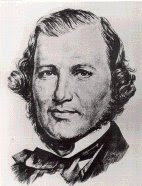As the rising tide of government intervention comes to consume more and more of the formerly private sectors of the American economy by way of this outrageous porkulus package, one is tempted to wonder what enemy of big business is perpetrating such a great injustice against the ranks of the so-called capitalists.
Hell, there doesn't appear to be a single component of this bill that ought to attract the support of business, especially since the portion of the package that is dedicated to business tax relief has become negligible, in stark contrast to efforts to entice business into giving up their freedom in previous decades.
So what fiendish enemy could possibly be hoodwinking big business into supporting this destruction of the free market?
Unfortunately, in the era of Obama, the greatest threat to big business is big business itself.
Devoid of anything resembling principle, these companies will sell themselves down the river with smiles on their faces for the illusion of security and, more importantly, to shift responsibility from themselves to the government.
As Vladimir Lenin chillingly put it, "The capitalists will sell us the rope with which we will hang them." How very right he seems to have been.
Michael G. Franc:
As the trillion-dollar-plus economic stimulus bill moved through the legislative pipeline, the portion devoted to business tax relief shrank, and shrank, and shrank. According to the Joint Committee on Taxation, the bill filed early this a.m. had been shorn of all but a few items of non-simulative tax pork worth a mere $6.15 billion over the next decade.
This is significant because, historically, business tax relief is the lure that attracts the support of large business trade associations to unwieldy legislative monstrosities such as the economic stimulus bill. Indeed, earlier this week top officials at business groups such as the National Association of Manufacturers and the U.S. Chamber of Commerce (among many others) were dropping hints that their organizations would take the bait.
But even as the conferees opted for more spending and less tax relief, the business lobbies held firm in their support of today’s bill. Remarkably, the National Association of Manufacturers not only endorsed the final agreement, but informed Members of Congress that it would be “key voting” the vote on final passage. “Key voting” is the trade association’s way of elevating the importance of a particular vote to Category Five status.
Message: We don't just like this legislation; we really like it.
To NAM, the pro-business position is to vote for a bill that reverses the highly successful welfare reforms of 1996 and drastically expands the welfare state, does extreme violence to the concept of federalism, and greatly shifts the responsibility and power over health care delivery and decision making from individuals to government, among many other failings.
A top NAM official explained:
We are in extraordinary times. We feel a balanced spending and tax relief package to revitalize our economy is needed. All of our members are on the frontlines of this crisis and are very eager to see some help from Washington… For companies that are struggling right now, that cash infusion could be the difference between life and death.
Ditto for the U.S. Chamber. A revealing story that appeared today in the McClatchy chain notes:
The president of the U.S. Chamber of Commerce, in a speech in Detroit Thursday, tried to put a brave face on the tough year ahead. Thomas Donohue acknowledged that big business didn't get in the stimulus bill some of the tax-relief measures it most wanted, but promised the Chamber's support.
"The bottom line is that at the end of the day, we're going to support the legislation. Why? Because with the markets functioning so poorly, the government is the only game in town capable of jump-starting the economy," Donohue said.
Ayn Rand, call your office.
Or, better yet, why don't we send every member of congress a copy of Atlas Shrugged and ask them if they can spot anything familiar.
Not that they would read it. Apparently, employees of the government aren't obliged to read anything at all, least of all bills that they're voting on.












|